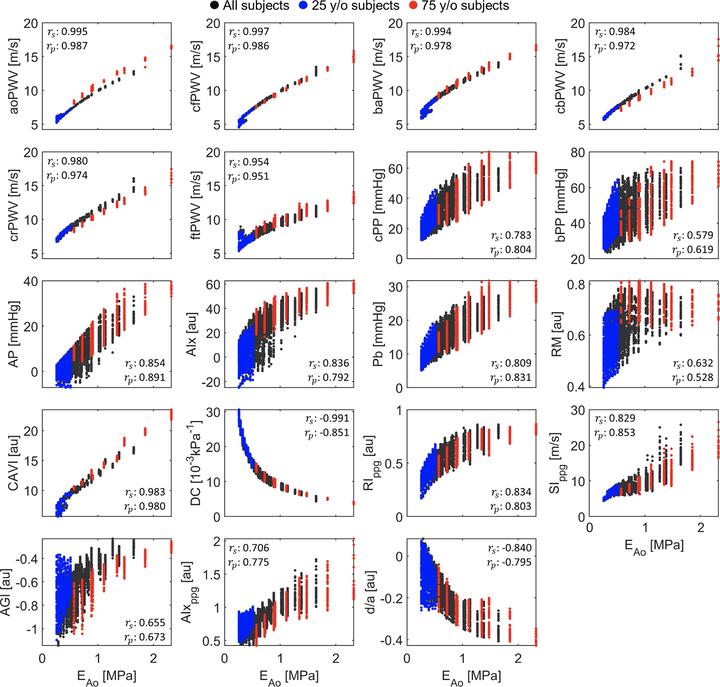 Image credit: Hong et al. (CC BY 4.0)
Image credit: Hong et al. (CC BY 4.0)
Abstract
Vascular aging (VA) involves structural and functional changes in blood vessels that contribute to cardiovascular disease. Several noninvasive pulse wave (PW) indices have been proposed to assess the arterial stiffness component of VA in the clinic and daily life. This study investigated 19 of these indices, identified in recent review articles on VA, by using a database comprising 3,837 virtual healthy subjects aged 25-75 yr, each with unique PW signals simulated under various levels of artificial noise to mimic real measurement errors. For each subject, VA indices were calculated from filtered PW signals and compared with the precise theoretical value of aortic Young’s modulus (EAo). In silico PW indices showed age-related changes that align with in vivo population studies. The cardio-ankle vascular index (CAVI) and all pulse wave velocity (PWV) indices showed strong linear correlations with EAo (Pearson’s rp > 0.95). Carotid distensibility showed a strong negative nonlinear correlation (Spearman’s rs < -0.99). CAVI and distensibility exhibited greater resilience to noise compared with PWV indices. Blood pressure-related indices and photoplethysmography (PPG)-based indices showed weaker correlations with EAo (rp and rs < 0.89, |rp| and |rs| < 0.84, respectively). Overall, blood pressure-related indices were confounded by more cardiovascular properties (heart rate, stroke volume, duration of systole, large artery diameter, and/or peripheral vascular resistance) compared with other studied indices, and PPG-based indices were most affected by noise. In conclusion, carotid-femoral PWV, CAVI and carotid distensibility emerged as the superior clinical VA indicators, with a strong EAo correlation and noise resilience. PPG-based indices showed potential for daily VA monitoring under minimized noise disturbances.